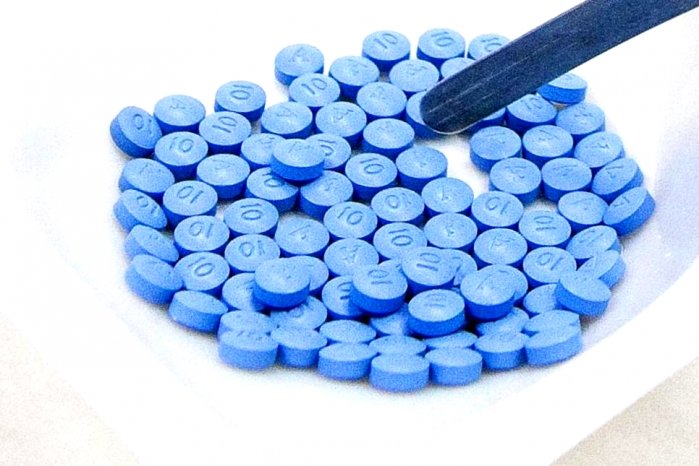
Two new diet drugs can boost weight loss by 5% to 10%
With the arrival of a diet drug to pharmacies, there are now two new prescription medications to treat obesity — the first new ones available to heavy patients in more than a decade. The drugs offer to boost weight loss a modest 5% to 10%, but become another “tool in the toolbox” for physicians trying to help America out of its obesity crisis.
Belviq (pronounced bel-VEEK), released this year, works on brain chemistry to create a feeling of fullness and can help obese patients lose an average of about 5% or so of their starting weight when used in combination with a reduced-calorie diet and exercise.
Another new diet drug, Qsymia (pronounced kyoo-SIM-ee-uh), from Vivus, which came out in mid-September, helps heavy folks drop about 10% of their weight by suppressing appetite and increasing the feeling of fullness.
Both drugs are intended to provide treatment help for those who are obese, which is roughly 35 or more pounds over a healthy weight, or overweight patients who have one other weight-related condition, such as high blood pressure, type 2 diabetes or high cholesterol. About a third of people in this country are obese. The drugs are not meant for people who want to lose a few pounds for cosmetic reasons.
Ben Yankowitz, 58, of Los Angeles, who has type 2 diabetes, has lost about 20 pounds since he started Qsymia several months ago. Six-foot-tall, he now weighs 185, down from 205. He says the medication really keeps hunger at bay. “During the day, I have to remind myself to eat lunch,” says Yankowitz, who is the CEO of Proteus Energy, a California-based oil and gas company.
Yankowitz says he hasn’t experienced any significant side effects from Qsymia, but he adds that it “is not a magic pill. You’ve got to exercise and follow a healthy diet too.”
Patients also reported weight loss success during the drug trials for Belviq, which works by activating a chemical receptor in the brain that can help people eat less and feel full after eating smaller amounts of food.
Lisa Sutter, 52, who works for the city government in Washington, D.C., lost weight on Belviq when she took it for two years during one of the drug’s trials. At 5-foot-5, she dropped from 230 pounds to 190.
Still, there are concerns about the side effects and risks of both drugs. Sidney Wolfe, founder and senior adviser of the health research group at Public Citizen, a consumer group, says, “We strongly oppose both of them. They both have serious dangers.”
Belviq was rejected by an FDA advisory panel in 2010 over safety issues.The second time the advisory committee met, the members discussed heart-valve concerns but decided that the benefits of the drug outweighed the risks. The agency later approved the medication.
Some experts are concerned that Qsymia raised the heart rates slightly in some patients. It is made up of two other older medications: the appetite-suppressant phentermine and the anti-seizure medication topiramate, which is sold under the brand name Topamax. The latter is used to treat epilepsy and migraines.
At Heal n Cure, the use of prescription medication for the treatment of obesity can be prescribed temporarily in conjunction with our nutrition and exercise program. Each patient is thoroughly evaluated, by either EKG or stress test, to determine whether or not the medication is safe to administer to the patient. Once prescribed, we routinely follow up with patients to make sure they are not experiencing any negative side effects and, when appropriate, monitor their blood pressure.
If you are interested in learning more about Heal n Cure’s Medical Weight Loss management program and how certain medications can help facilitate success, then book a free consultation with our lifestyle educator today!
What Do You Think?
Do you think weight loss medications can help reverse the obesity crisis our Nation faces? Please comment below.
ref: USAToday.com


